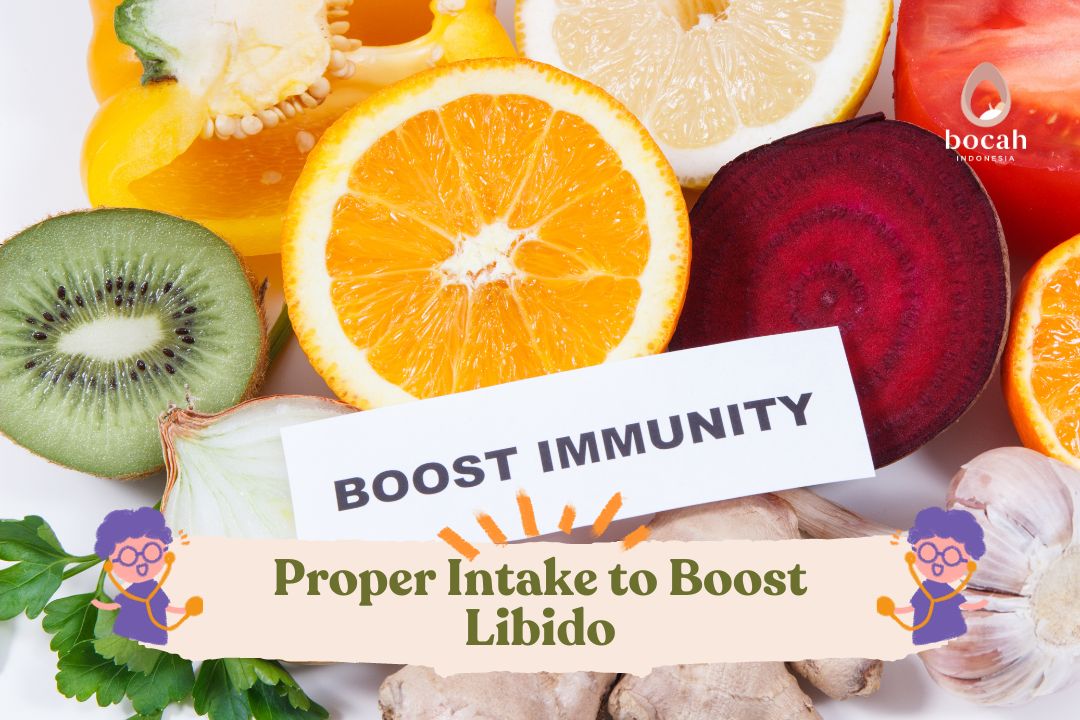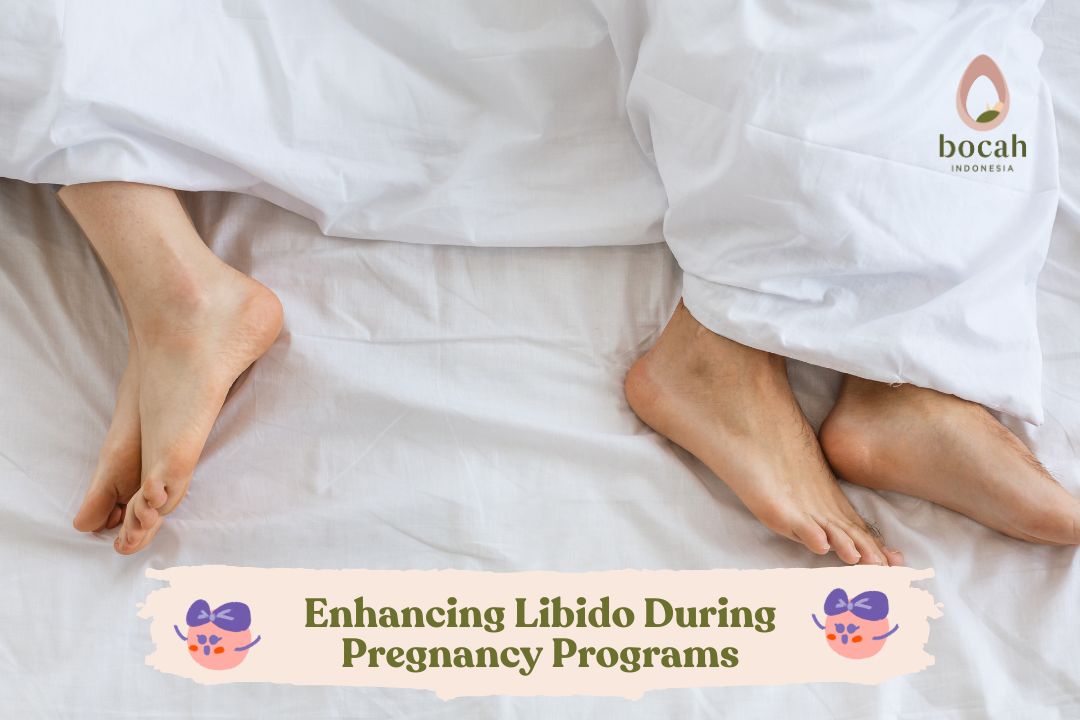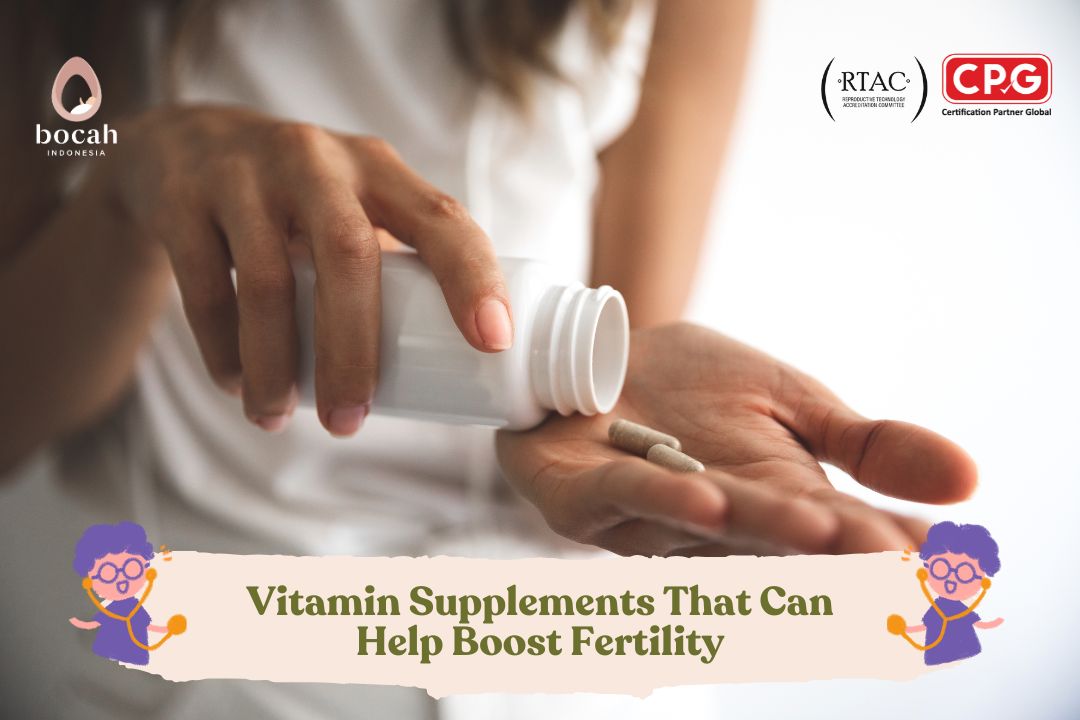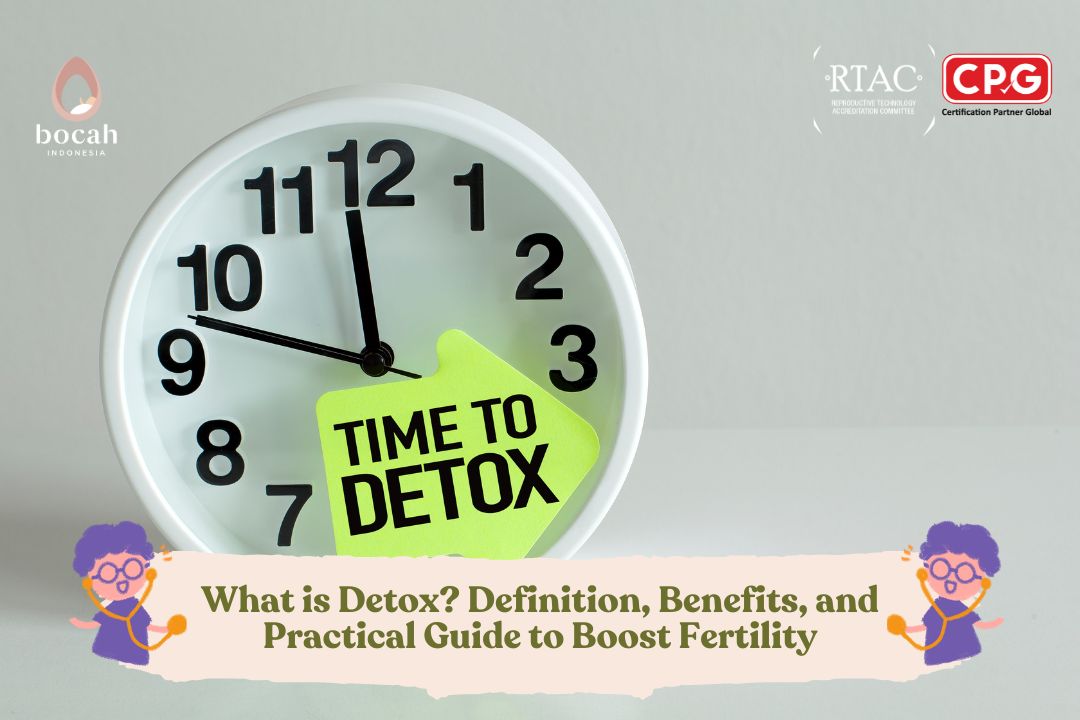Proper Intake to Boost Libido

Libido, or sexual desire, is an important aspect of marital relationships, and a proper diet can play a role in enhancing libido.
Libido is a person’s sexual drive, which is a part of human biological and emotional needs. Everyone has different levels of libido, and it can be influenced by various factors such as age, physical health, psychological conditions, and lifestyle. Differences in libido levels can also be seen between men and women, including between fathers and mothers. To naturally boost libido, fathers and mothers can try consuming libido-enhancing foods.
Some types of food contain nutrients that can increase energy, improve blood flow, and balance hormones, all of which can help enhance sexual desire. Here are some foods known to boost libido.
Libido-Boosting Foods
If you are expecting a child or undergoing a pregnancy program, information about foods that can increase libido may be very useful. To avoid confusion, check out the list of libido-boosting foods below:
1. Dark Chocolate
Dark chocolate is known as one of the foods that can increase libido due to its phenylethylamine (PEA) content, which can enhance mood and stimulate feelings of euphoria. Additionally, dark chocolate is rich in antioxidants that help improve blood flow and heart health, both crucial for optimal sexual function. To get the maximum benefit, it is recommended to consume dark chocolate with at least 70% cocoa content.
Tanya Mincah tentang Promil?
2. Oysters
Oysters are a very high source of zinc, an important mineral that helps boost testosterone production in both men and women, a hormone directly related to libido. Zinc also helps increase energy and stamina. Oysters can be consumed raw or cooked by grilling or boiling to gain these benefits. Make sure to clean oysters thoroughly before consumption.
3. Avocados
Avocados are fruits that contain monounsaturated fats that are good for heart health and help improve blood flow. Avocados are also rich in vitamin E, which can enhance sperm quality in men and support reproductive health in women. You can enjoy avocados in salads, smoothies, or as a spread on bread.
4. Nuts and Seeds
Nuts and seeds like almonds, walnuts, and chia seeds are rich in omega-3 fatty acids that help improve blood flow and hormone balance. Nuts also contain L-arginine, an amino acid that helps increase blood flow to the reproductive organs. You can consume a handful of nuts as a snack or add seeds to salads or yogurt.
5. Fruits
Fruits like strawberries, blueberries, and pomegranates are rich in antioxidants that help improve blood flow and heart health. These fruits also contain vitamin C, which increases energy and helps produce hormones related to libido. Fruits can be consumed fresh, in smoothies, or as part of a healthy dessert.
6. Garlic
Garlic contains allicin, which helps increase blood flow to sexual organs and plays a role in detoxifying the body from toxins that can interfere with sexual function. Add garlic to your daily meals, such as pasta, soups, or stir-fries to gain its benefits.
7. Ginger and Cinnamon
Ginger and cinnamon are spices that can help improve blood circulation, which is important for healthy sexual function. These spices can also increase body temperature and provide warmth that enhances sexual desire. Add ginger and cinnamon to tea, smoothies, or dishes to enhance flavor and health benefits. You can consume these warm drinks before engaging in sexual activities.
8. Ginseng
Ginseng is an adaptogen known in traditional medicine as an effective aphrodisiac. Ginseng helps reduce stress and increase energy and stamina, all of which are important for boosting libido. Ginseng can be consumed in the form of tea, supplements, or mixed into food.
Causes of Decreased Libido During Pregnancy Programs
Decreased libido or sexual desire in parents can occur due to various interrelated and often complex factors. This issue is common among many couples, whether newlyweds or those who have been together for a long time.
1. Stress and Anxiety
The process of undergoing a pregnancy program can be a source of stress for some parents. The pressure to conceive quickly, concerns about fertility, and intense medical routines can trigger stress and anxiety. Stress can disrupt hormonal balance, reducing the production of sex hormones like testosterone and estrogen, which in turn lowers libido.
2. Physical and Emotional Fatigue
The pregnancy program often involves a tight schedule for sexual relations, medical examinations, and other health procedures. This can lead to physical and emotional fatigue in parents, reducing their energy for sexual activity. Excessive fatigue can diminish sexual desire and enjoyment.
3. Hormonal Changes
Hormonal changes caused by infertility treatments can affect libido. Medications such as clomiphene citrate (Clomid), used to stimulate ovulation, or other hormone therapies, can disrupt the body’s natural hormonal balance, leading to decreased libido in both men and women.
4. Health Issues
Certain health conditions often associated with fertility, such as Polycystic Ovarian Syndrome (PCOS), endometriosis, or thyroid problems, can negatively impact libido. These conditions not only affect hormonal balance but can also cause physical pain and discomfort that reduce sexual desire.
5. Side Effects of Medications
Some medications used in pregnancy programs or to treat other health conditions can cause side effects, such as decreased libido. Antidepressants, blood pressure medications, and hormone-regulating drugs are examples that can interfere with sexual function.
6. Relationship Dynamics
Tension or conflict in the relationship due to the pressure to conceive can lead to a decrease in sexual desire. Poor communication, feelings of frustration, or unresolved conflicts can reduce emotional and physical intimacy, ultimately impacting the sexual desire of both parents.
7. Lifestyle
The lifestyle of parents also greatly affects libido reduction, such as changes in sleep patterns, diet, and physical activity, which can impact energy and libido. For example, a strict diet or lack of sleep can reduce energy and interest in sexual activity.
8. Psychological Conditions
Depression, anxiety, and other psychological disorders that may occur during the pregnancy program can disrupt libido. These conditions often require special medical and psychological attention to be properly addressed.
Decreased libido can interfere with the frequency and quality of sexual relations, which in turn can affect the chances of conception. Therefore, it is important for parents to manage stress, maintain good communication, and seek medical help if needed. Additionally, it is also important to maintain an overall healthy lifestyle, including adequate sleep, regular exercise, and nutritious food. Hopefully, this information is useful and helps parents in undergoing the pregnancy program!
This article has been medically reviewed by Dr. Chitra Fatimah.
Source:
- Bo, et al. (2020). A Critical Review on the Role of Food and Nutrition in the Energy Balance. Nutrients. 12(4): 1161.
- Silva, et al. (2019). Food with Influence in the Sexual and Reproductive Health. Current Pharmaceutical Biotechnology. 20(2), pp. 114-122.
- National Health Service UK (2002). Health A to Z. Loss of Libido (Reduced Sex Drive).
- Brito, J. Healthline (2018). 5 Foods to Eat for Better Sex — and 3 You Should Really Avoid.
- Severson, A. Healthline (2020). Boost Your Libido with These 10 Natural Tips.
- WebMD (2020). Best Foods to Eat Before Sex.





